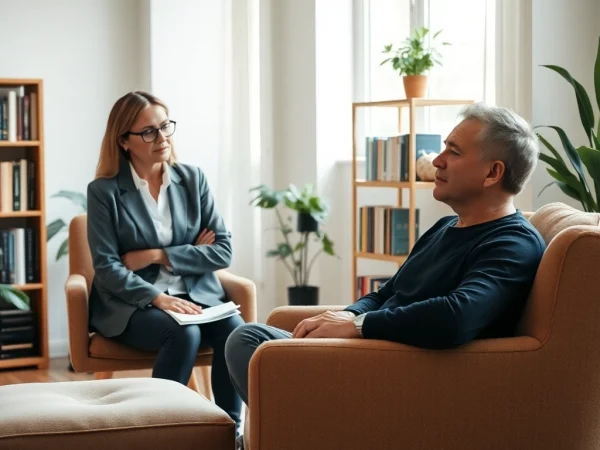Understanding the Role of an Attachment Theory Specialist in Emotional Well-being
What is Attachment Theory?
Attachment Theory is a psychological concept developed to understand how human beings form emotional bonds with others. Rooted in the work of British psychologist John Bowlby and later expanded by Mary Ainsworth, this theory posits that early interactions with caregivers shape emotional and relational patterns throughout life. Understanding these patterns is crucial to developing healthier relationships and addressing emotional difficulties. If you’re seeking guidance related to your attachments and want to better grasp how they affect your relationships, working with an attachment theory specialist can offer profound insights.
Overview of Attachment Theory Concepts
At its core, Attachment Theory focuses on the dynamics of long-term relationships, particularly those formed in childhood. Bowlby proposed that children are biologically predisposed to develop attachments to caregivers as a means of survival. These beginnings set the stage for how individuals will interact with others in adulthood. The theory outlines several key components:
- Secure Base: A primary caregiver provides a secure base from which the child can explore the world and return to for comfort and safety.
- Internal Working Models: Experiences with caregivers shape internal beliefs about self-worth and the trustworthiness of others.
- Patterns of Attachment: Different styles emerge based on responsiveness of caregivers, influencing future relational behaviors.
The Importance of Secure Attachments
Secure attachments form when caregivers are consistent and responsive to a child’s needs. This security nurtures a sense of safety, leading to healthier emotional regulation and social engagement. Individuals with secure attachments tend to exhibit:
- Better emotional regulation and resilience.
- Healthier relationships characterized by trust and communication.
- Greater social competence and connectedness in various relationships.
Conversely, insecure attachments can lead to patterns of anxiety, avoidance, or disorganization in relationships, resulting in challenges in future interactions and emotional well-being.
Common Attachment Styles Explained
Attachment theory identifies several distinct styles of attachment that can emerge based on early experiences:
- Secure Attachment: Characterized by a healthy balance of independence and emotional closeness.
- Anxious Attachment: Individuals often seek high levels of intimacy and may experience insecurity about their partner’s availability.
- Avoidant Attachment: These individuals typically avoid closeness and may struggle to express their feelings or needs.
- Disorganized Attachment: Often results from trauma or inconsistent caregiving, leading to confused behaviors in relationships.
Understanding these attachment styles is crucial in both therapy and interpersonal relationships, providing a blueprint of how past relationships impact current dynamics.
The Role of an Attachment Theory Specialist
An attachment theory specialist is trained to help individuals recognize and navigate their attachment styles and the impact these styles have on their emotional health and relationships. Utilizing a comprehensive approach, these specialists can significantly improve individuals’ relational patterns through therapy focused on building secure attachments.
How Attachment Theory Specialists Help Clients
Working with an attachment theory specialist can reveal insights into personal behaviors and emotional responses that may have previously been unrecognized. Here are several ways in which specialists assist their clients:
- Providing Insights: Specialists help individuals understand how their attachment styles influence their behaviors and relationships.
- Facilitating Healing: They guide clients through emotional healing processes, addressing past traumas that impact current functioning.
- Enhancing Communication Skills: By understanding attachment styles, clients learn to communicate their needs effectively, improving their interactions with others.
Key Techniques Used by Attachment Theory Specialists
Attachment theory specialists employ various therapeutic techniques rooted in the tenets of attachment theory. Common approaches include:
- Emotionally Focused Therapy (EFT): A structured therapy that focuses on enhancing emotional connections and reducing distress in relationships.
- Attachment-Focused Therapy: This approach aims to identify and repair attachment wounds by fostering safe relational environments.
- Mindfulness Techniques: These strategies enable clients to develop greater emotional awareness and regulation, allowing for healthier responses in relationships.
By blending these approaches, specialists can tailor their interventions to meet individual client needs, ensuring a personalized therapeutic process.
Qualities to Look for in an Attachment Theory Specialist
When seeking help from an attachment theory specialist, it’s essential to consider certain qualities that can enhance the therapeutic experience:
- Empathy and Understanding: A specialist should demonstrate empathy and create a safe space for clients to share their experiences.
- Relevant Experience: It’s beneficial for the specialist to have experience specifically in attachment theory and related therapeutic practices.
- Effective Communicator: They should possess the ability to convey concepts clearly and facilitate productive dialogue.
Finding the right specialist can lead to transformative progress in understanding one’s attachment patterns and fostering healthier relationships.
Benefits of Attachment-based Therapy
Attachment-based therapy provides a unique lens through which individuals can understand their emotional and relational dynamics. The benefits extend to both personal development and improvement in interpersonal relationships.
Improving Communication in Relationships
One of the significant benefits of engaging with an attachment theory specialist is enhanced communication. Clients learn to articulate their feelings, needs, and relationship patterns more effectively. As they understand their attachment style, individuals can:
- Communicate needs without fear of judgment.
- Recognize and address miscommunication in relationships.
- Develop conflict resolution skills that are informed by emotional understanding.
This improved communication nurtures healthier relationships and fosters deeper connections.
Enhancing Emotional Regulation and Resilience
A critical aspect of attachment-based therapy is its role in enhancing emotional regulation. As clients explore their attachment history, they learn strategies for managing their emotions, leading to:
- Increased resilience in facing relational challenges.
- Better coping strategies for anxiety and stress.
- Development of secure self-esteem and a better understanding of personal self-worth.
By fostering resilience and emotional regulation, clients become more adept at navigating conflicts and uncertainties in relationships.
Promoting Healthy Attachment Patterns
Ultimately, a primary goal of working with an attachment theory specialist is to promote the development of healthier attachment patterns. Through therapy, individuals can:
- Transform insecure attachment styles into secure ones.
- Learn to build and maintain trusting, supportive relationships.
- Increase their capacity for intimacy and emotional closeness with others.
This evolution towards healthier attachment patterns is essential for overall emotional well-being and relationship satisfaction.
Finding the Right Attachment Theory Specialist
Identifying the right attachment theory specialist is crucial for effective therapy. The following steps can guide you in the selection process.
Questions to Ask Potential Specialists
Before committing to a therapist, consider asking the following questions to ensure compatibility and expertise:
- What is your experience with attachment theory and therapy?
- How do you approach therapy when dealing with attachment-related issues?
- Can you provide examples of how you have helped clients with similar concerns?
These inquiries will provide deeper insights into the specialists’ methods and experience, aiding in making an informed choice.
Understanding Fees and Session Structures
Understanding a specialist’s fees and session structures is also critical. Inquire about:
- Session length and frequency recommendations.
- Fee structures, including payment plans or sliding scale options.
- Insurance coverage or potential out-of-pocket expenses.
This clarity helps to manage expectations regarding the cost of therapy and ensures that it fits within your budgetary constraints.
Where to Locate Certified Attachment Theory Specialists
Start your search for a certified attachment theory specialist by considering the following resources:
- Online Directories: Websites like Psychology Today feature directories of therapists, allowing searches based on specialties.
- Recommendations: Personal recommendations from friends, family, or health professionals can lead to finding effective specialists.
- Professional Associations: Seek professionals associated with reputable mental health organizations focusing on attachment theory.
This multi-faceted approach can enhance the likelihood of finding a suitable specialist for your needs.
Ongoing Support and Resources
Even after beginning therapy, ongoing support and resources are vital to reinforce learning and promote growth. Here are some additional avenues for continued development.
Books and Publications on Attachment Theory
Literature related to attachment theory can provide profound insights and strategies for personal development. Some notable texts include:
- The Attachment Theory: A Very Short Introduction by Mary Ainsworth: This book provides a concise overview of attachment theory’s main concepts and applications.
- Attached by Amir Levine and Rachel Heller: This text offers a practical guide to understanding attachment styles in relationships.
Reading these resources enhances comprehension and can foster more meaningful discussions during therapy sessions.
Online Communities and Support Groups
Participating in online communities and support groups can provide valuable peer support for individuals navigating attachment-related issues. Platforms such as:
- Reddit: Subreddits such as r/attachment_theory provide a space for discussion and shared experiences.
- Facebook Groups: There are numerous groups dedicated to attachment theory where members can share insights and receive support.
Engaging in these communities helps normalize your experiences and offers additional coping strategies outside therapy.
Continuing Education for Attachment Theory Specialists
It’s essential for attachment theory specialists to pursue continued education in the field to stay current with research and therapy practices. Resources might include:
- Workshops and training programs focused on attachment theory.
- Conferences hosted by professional psychology associations.
- Peer supervision and professional development groups.
This ongoing education is vital in enhancing the skills of specialists, ultimately benefiting clients through informed and contemporary therapeutic practices.










